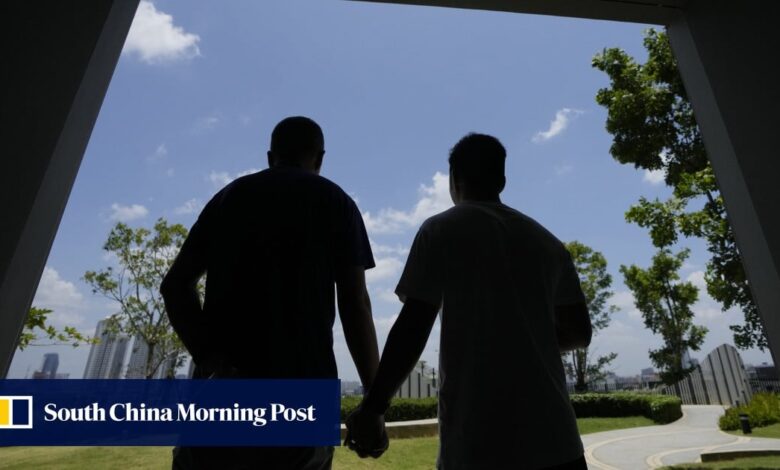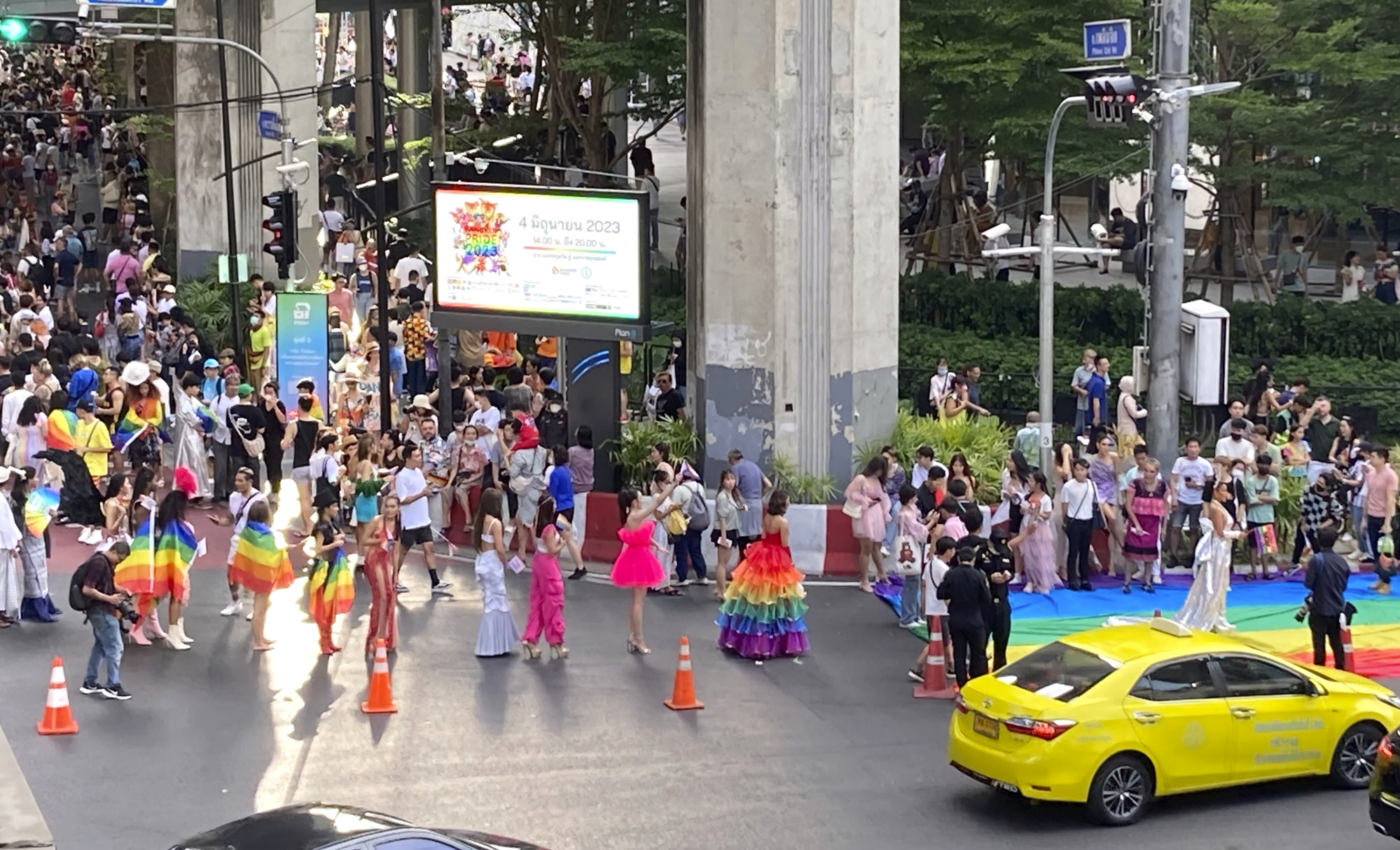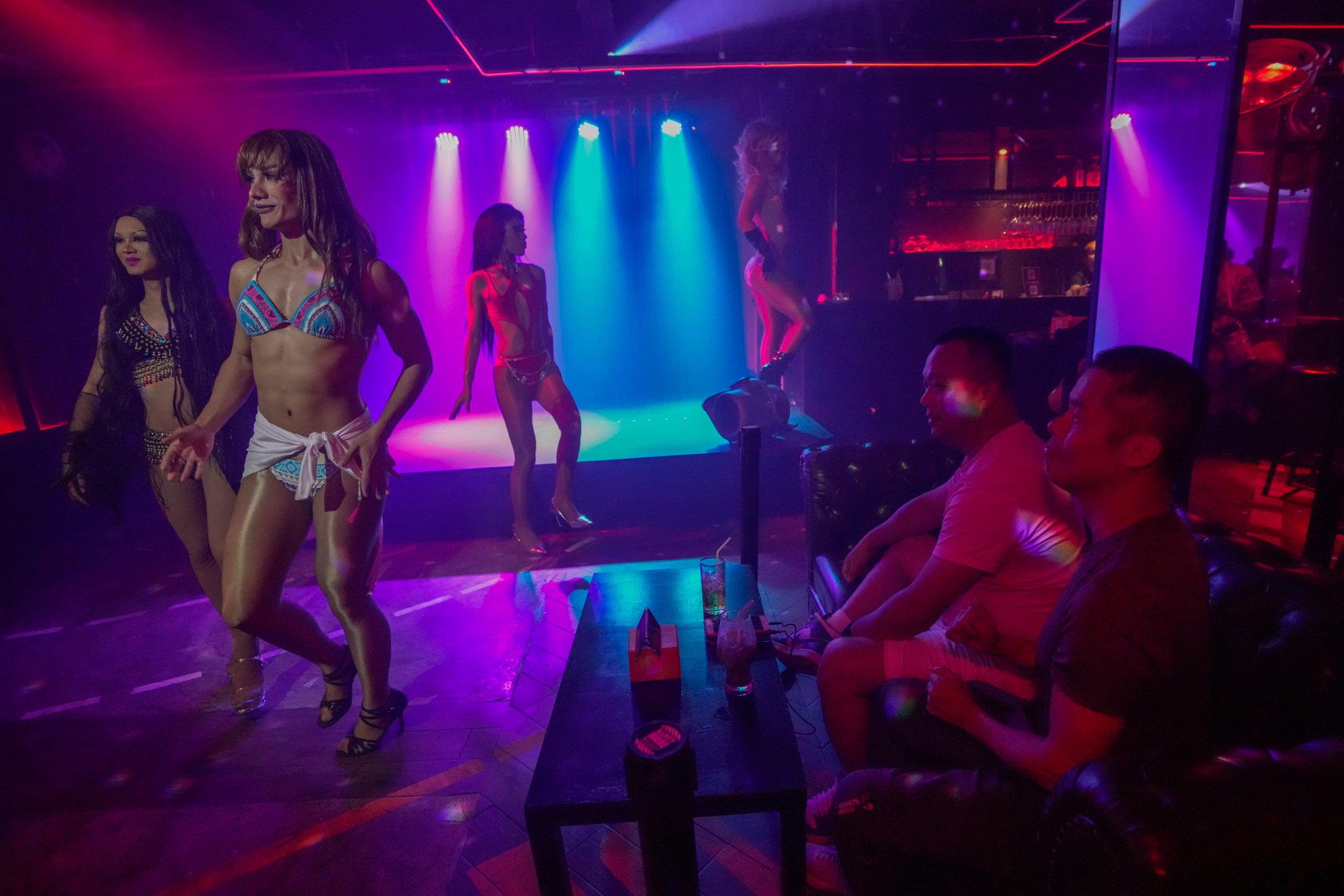China’s LGBTQ tourists flock to Thailand to be themselves, ‘forget all upsetting things’

[ad_1]
“I wanted to go to Thailand to take a look,” she said.
Wen describes herself as queer, which she says means that her partners can be any gender and she can be any gender. At home, Wen said she regularly gets judgmental stares on the street for wearing her hair short like a man’s, and was once asked by her barber: “What happened to your life?”
Chinese LGBTQ organisations look for ways to survive crackdown
Chinese LGBTQ organisations look for ways to survive crackdown
“I felt a mixed feeling, touched but sad,” Wen said.
Ahead of her trip, she read up on the situation in Thailand, finding reports that showed there is still widespread discrimination, especially in the workplace. Thailand does not recognise same-sex unions or marriages, which also means LGBTQ people are barred from adopting children and other legal processes that straight couples have access to.
Wen arrived at the parade somewhat sceptical. But she ended up finding it empowering.
“Although I initially had a critical attitude toward the parade in Bangkok because discrimination against LGBTQ individuals hasn’t disappeared, I still felt inspired because the neglected groups and the suppressed feelings matter here.”

Tourism Authority of Thailand official Apichai Chatchalermkit said in an August 9 article in The Nation newspaper that LGBTQ tourists are considered “high-potential” as they tend to spend more and travel more frequently than other visitors.
“Using a photo of LGBTQ individuals in tourism advertisements is considered as offering a warm welcome without discrimination,” he said.
Owen Zhu, a gay property agent in Bangkok who sells houses to Chinese clients, said many are also coming to stay. He estimated some two-thirds of his clients are LGBTQ, many of whom buy flats to live in part- or full-time.
Among Chinese gay people, Thailand is called gay’s heaven
“Among Chinese gay people, Thailand is called gay’s heaven,” he said, noting that there are many chat groups where gay men from China coordinate trips to Thailand and share information about parties and tickets to events.
As a lesbian in her conservative province in central China, Jade Yang was talked into marrying a gay man at her parents’ request so that both of them could keep up appearances.
The 28-year-old, who works in the television industry, first visited Thailand four years ago and remembers being shocked to hear people talk casually about their same-sex partners. Yang disliked lying to her cousins and friends about the marriage and moved to Thailand in February, saying she wanted to distance herself from her hometown.

Now, she said, she can date the women she likes and focus on her studies and career without worrying about how to act as a straight woman.
“I wasted a lot of time over the past three years,” she said. “After coming here, I feel the world is so big for me to explore. I have also learned I should not deny the way I am so easily, and love myself better.”
At the Silver Sand gay bar in Bangkok, owner Adisak Wongwaikankha said about 30 per cent of his customers are LGBTQ people from China, and that number has been growing.
He operates a bar on the ground floor and a drag show on the second floor.
Chinese diplomat causes stir in Japan after calling trans people ‘deformed’
Chinese diplomat causes stir in Japan after calling trans people ‘deformed’
“Most of our Chinese customers come with excitement and curiosity,” he said.
Another draw for tourists, inside and outside the LGBTQ community, is Thailand’s loose enforcement of prostitution laws and renowned nightclub shows.
Eros Li first came to Thailand in February to check out the nightlife and the massage parlours, many of which offer sex services. The 42-year-old returned two months later, saying that, while there are some spas in China where similar sex services are on offer, they are less accessible and there is a risk of being arrested.
“The LGBTQ community in Thailand is lively and open. I received many messages on gay dating apps every day, which made me happy,” Li said.
[ad_2]
Source link




